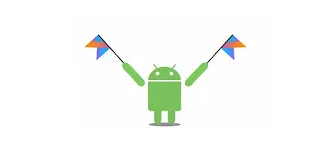51. Object expressions in Kotlin (Anonymous objects)
🌟 Object Expressions in Kotlin: Deep Dive into Anonymous Objects
Hello, Kotlin developers! Today we'll explore a powerful and flexible feature of Kotlin language - object expressions, which allow you to create anonymous objects on the fly without explicitly defining a class.
📘 What Are Object Expressions?
Object expressions in Kotlin are a way to create objects directly from an interface or abstract class without declaring a named class. They provide an elegant solution for creating one-time implementation of interfaces or extending classes with minimal overhead.
🔍 Basic Syntax and Structure
val objectName = object : SuperType {
// Custom implementation of methods
override fun someMethod() {
// Method body
}
}
🚀 Key Features of Object Expressions
- Can implement multiple interfaces
- Can override methods and properties
- Have access to external scope variables
- Can be used as function return types
🔧 Practical Examples
// Example 1: Simple interface implementation
interface Greeter {
fun greet(name: String)
}
val customGreeter = object : Greeter {
override fun greet(name: String) {
println("Hello, $name!")
}
}
// Example 2: Multiple interface implementation
interface Logger {
fun log(message: String)
}
val multiPurposeObject = object : Greeter, Logger {
override fun greet(name: String) {
println("Custom greeting: $name")
}
override fun log(message: String) {
println("Logging: $message")
}
}
🌈 Advanced Use Cases
Object expressions are particularly useful in scenarios like:
- Event listeners
- Callback implementations
- Temporary data structures
- Configuration objects
💡 Performance Considerations
While object expressions are convenient, they create a new class instance each time they are used. For performance-critical code, consider using function references or predefined classes.
🏋️ Practical Challenges
Challenge 2: Implement a logging object with different log levels.
Challenge 3: Create an object expression with captured variables from external scope.
Challenge 4: Design a multi-interface object for a simple game character system.
Challenge 5: Implement a dynamic validator object with custom validation logic.
🎓 Best Practices
- Use object expressions for short, one-time implementations
- Prefer named classes for complex or reusable logic
- Be mindful of memory allocation
- Consider functional interfaces for simpler scenarios
🔬 Limitations
- Cannot have constructors
- Cannot define static members
- Limited to interface and class extensions
📝 Conclusion
Object expressions in Kotlin provide a flexible and concise way to create anonymous implementations. By understanding their capabilities and constraints, you can write more elegant and readable code.
📱 Stay Updated with Android Tips!
Join our Telegram channel for exclusive content, useful tips, and the latest Android updates!
👉 Join Our Telegram ChannelGet daily updates and be part of our growing Android community!


Comments
Post a Comment